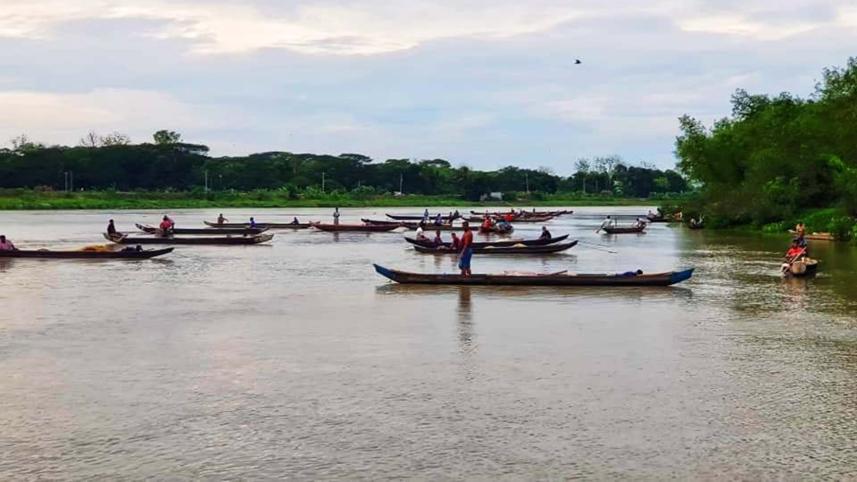Genome sequencing opens new horizon for Halda carp, dolphins

Researchers in Bangladesh have been able to decode the genome sequencing of brood fish and riverine dolphin -- opening a new horizon for carp-like fish and the endangered cetacean in Halda river, a unique waterbody in the world where spawning occurs naturally.
The announcement of success came today from a virtual press conference by PKSF (Palli Karma-Sahayak Foundation), which financed the genome decoding project.
Professor Manzurool Kibria, eminent Halda researcher and AMAM Junayed Siddiki, professor of Chattogram Veterinary Animal Science University (CVASU), jointly led the brainwork of the research.
The decoding of genome sequencing will help identify the unique wild variety of the brood fish, its food variety and reasons behind its diseases.
Professor Manzurool Kibria told The Daily Star that they took two years to decode the genome of the brood fish and dolphin (Platanista).
The research will help identify four species of carp-like fish available in Halda river.
"The carp in Halda has a superb growth speed and unique taste. This decoding will help identify the Halda carp and they could be commercially farmed across the country. Now Halda contributes Tk 800 crore to national economy. The contribution could be taken to more than a thousand crore through this research," he said.
PKSF and IDF (Integrated Development Foundation) have been working for better conservation of the river since 2016.
Dr Nomita Haldar, managing director of PKSF said that the organisation will continue its support in research and conservation of the Halda river.



 For all latest news, follow The Daily Star's Google News channel.
For all latest news, follow The Daily Star's Google News channel.
Comments